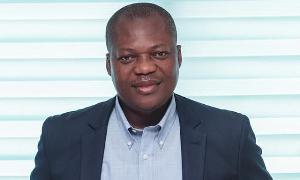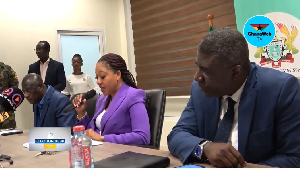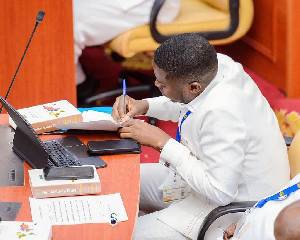There is the strongest hint yet that Ghana could explore the option of joining the Islamic Development Bank (IsDB) as part of expanding its funding pool in the area of especially infrastructure financing at the central government level.
The main opposition National Democratic Congress (NDC) has included two major ethical finance plans to its manifesto for the 2024 general elections, a development that has excited major advocates of financial inclusion and alternative financing methods.
According to the 200-paged manifesto, an NDC government will pursue “membership of the Islamic Development Bank to broaden opportunities for development financing.”
This was one of 13 points under the ‘Scaling up Revenue Mobilization’ subheading on page 5.
“This is a seismic development however you look at it, it is a big first step. Political commitment to a very unique alternative finance module that is tried and tested and which most neighbours of Ghana are leveraging for development is key,” Prof John Gatsi, Dean of the University of Cape Coast (UCC) Business School stated.
He is clear that even though a political policy proposal is good, there remains more to be done by all stakeholders by way of grounds work to ensure that the proposal comes to fruition, “the time is now, more than ever, to put in the hard work,” he stressed.
On page 10 of the document under the subheading, ‘Restoring Confidence and Integrity in the Capital Markets,’ the NDC stated further that it would “facilitate the introduction of new financial products, including exchange-traded funds (ETFs), asset-backed securities, infrastructure bonds, derivatives, and Islamic financial products, diversifying investment opportunities and boosting market activity.”
On the specific case of the introduction of Islamic finance products as proposed, Director of the Islamic Finance Research Institute Ghana (IFRIG), Dr. Shaibu Ali, explained that it was a foot-in-the-door moment for ethical finance advocates.
“Having a major political player make such these commitments is in the view of IFRIG, having a foot in the door, now we must boost our advocacy and cooperation with other stakeholders within and outside to ensure that we get through the door properly and into the room.
“Indeed, it is when we are in the room that the real heavy lifting of more research and collaboration through to rollout of ethical finance products and services will start, but which ever way one looks at it, this is as huge as it comes,” Dr. Ali emphasized.
He agreed with Prof. Gatsi’s assessment that the development was seismic but would require greater cooperation between now and fruition. “The IsDB has supported many governments in the subregion, it is exciting to know that Ghana is looking to benefitting from its offering sooner or later,” Dr. Ali added.
Meanwhile IFRIG’s main annual programme, the Islamic Finance International Conference (IFIC) is scheduled to take place at the Omanye Aba Hall of the Accra Metropolitan Assembly on October 5, 2024.
Business News of Thursday, 29 August 2024
Source: Islamic Finance Research Institute of Ghana

















